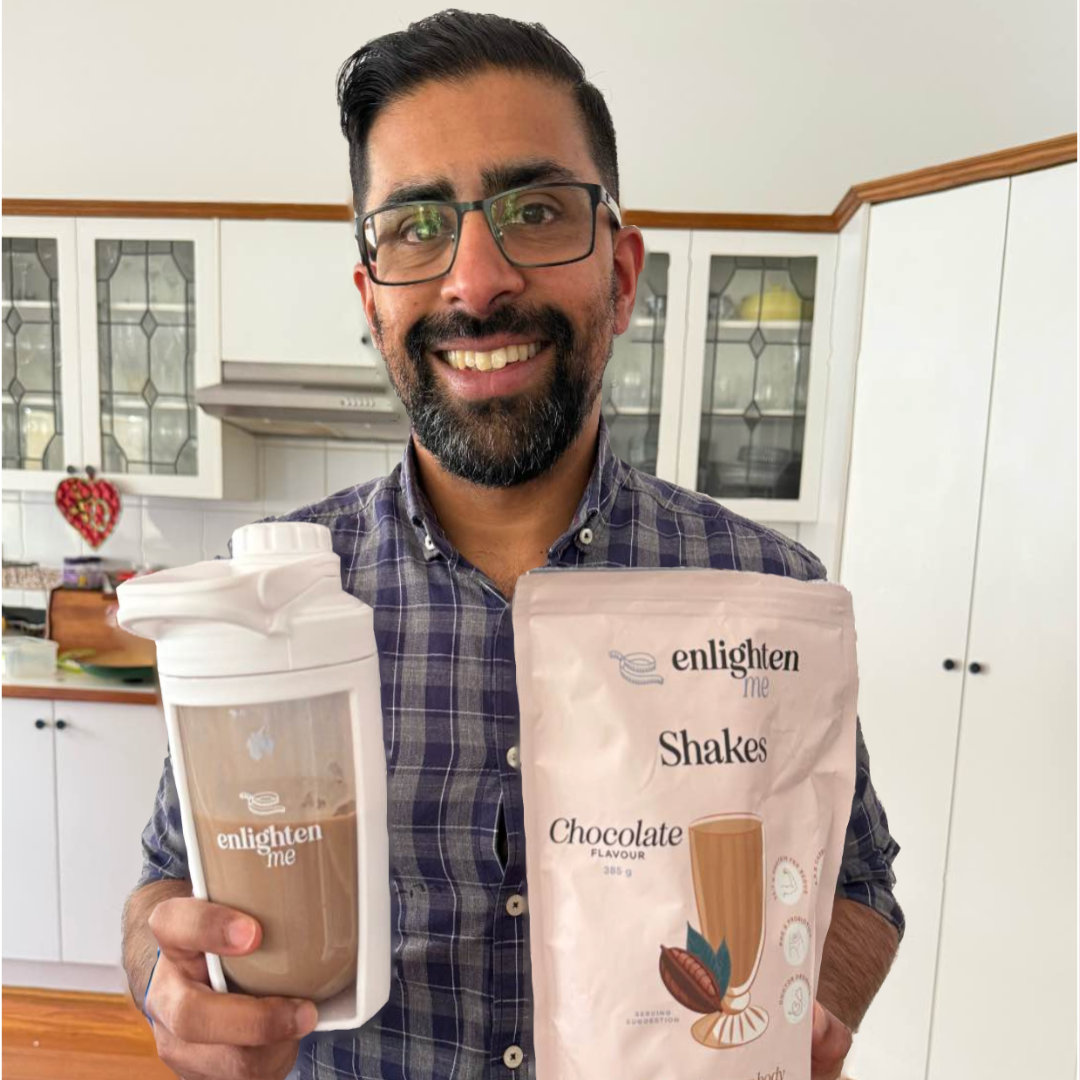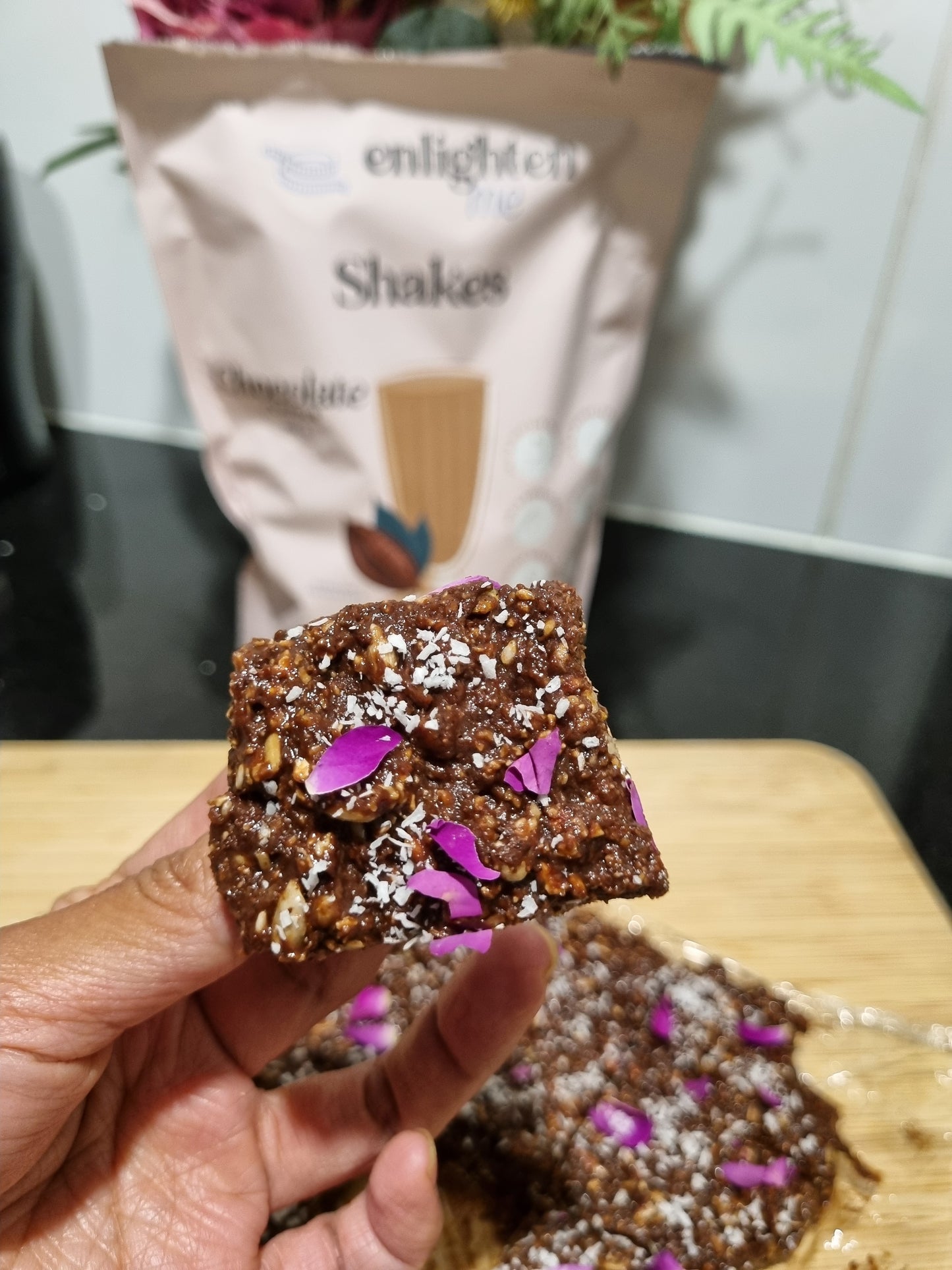
What Is Food Noise and How To Manage It
Share
Food noise has become one of the most talked-about experiences in weight management. With the rise of GLP-1's, many people are finally able to name something they’ve lived with for years: intrusive, persistent thoughts about food that feel almost impossible to switch off.
At Enlighten Me, we hear this from patients every day. For many, food noise has shaped their eating patterns, emotional wellbeing and daily routines for decades. And often, it is only when the noise quietens that they realise just how loud it was.
So, what exactly is food noise, why does it happen, and how do people naturally manage it?
What Is Food Noise?
Food noise is the persistent, intrusive and often obsessive mental chatter about food. It includes ongoing thoughts about what to eat, when to eat, what not to eat, cravings, guilt, planning and self-negotiation.
It is different from normal thoughts about meals.
It’s the intensity, frequency and intrusiveness that set it apart.
Food noise can be:
- triggered by external cues such as seeing or smelling food
- amplified by internal cues such as hunger, stress or hormonal fluctuation
- distracting enough to interfere with work, conversations or concentration
- linked to past experiences, emotions or long-standing dietary patterns
Food noise is real. While not a medical diagnosis, it’s a recognised behavioural and psychological experience shaped by appetite hormones, reward circuitry, stress responses and habit loops.
Examples of Food Noise: What It Feels Like
The “Before”
Many people describe the before as a relentless loop of thoughts, such as:
- Hmm, what should I eat next?
- I shouldn’t eat that.
- What’s in the fridge?
- I need to be healthier.
- Chocolate sounds good... but chocolate is bad... maybe something salty?
- The pantry is empty – I’ll need to go to the shops.
- Tonight I’m going out with the girls – what should I order?
- I should try meal prepping again.
This is food noise. Not simply thinking, but thinking on repeat.
The “After”
For many individuals using GLP-1's, the contrast is unexpectedly dramatic.
"Oh gosh, it's 3pm and I missed lunch?
The fridge is still full ... that's new?"
Some feel relief. Some feel unsettled. Some say it feels like someone turned the (LOUD!) radio off.
Characteristics of Food Noise
Food noise often includes:
1. Intrusive thoughts
A constant internal monologue about food.
2. Hyperfocus
Thoughts that interrupt work, decision-making or daily tasks.
3. Trigger-driven responses
Food noise may heighten when people:
- walk past restaurants
- smell food cooking
- scroll social media
- feel stressed, tired or emotional
4. Behavioural impact
Food noise can contribute to cravings, overeating, emotional eating or cycles of guilt and restriction.
What Causes Food Noise?
Food noise can arise from a combination of biological, emotional and environmental factors.
1. Restrictive dieting
Chronic calorie restriction amplifies hunger hormones and intensifies food-related thoughts.
2. Stress and trauma
The brain may use food for comfort or distraction, increasing intrusive thinking.
3. Medical conditions
PCOS, insulin resistance, sleep deprivation, diabetes and thyroid disorders can all disrupt appetite and increase food noise.
4. Ultra-processed foods
These foods can overstimulate reward pathways, increasing cravings and mental chatter.
5. Emotional history and learned patterns
Many people carry childhood or cultural beliefs such as:
- finishing everything on the plate
- associating food with comfort
- guilt around eating
- fear of wasting food
6. Weight-loss medication
GLP-1's often quieten food noise significantly.
But timing varies person to person:
- Some experience reduced food noise early, during the initial acclimatisation phase.
- Others notice it later, once the dose is established and steady state is reached.
- Some experience fluctuations along the way.
This variability is normal and reflects individual differences in gut–brain signalling
Is Food Noise an Eating Disorder?
No – food noise itself is not an eating disorder.
However, intrusive food thoughts may occur alongside:
- emotional eating
- binge-restrict cycles
- disordered eating patterns
- chronic dieting
- stress-related eating
Food noise is a symptom, not a diagnosis. And importantly, it can be a sign that the person deserves support, nourishment and compassion.
How To Manage Food Noise Naturally
Many people want to know how to stop food noise naturally, with or without medication. While there is no single solution, several strategies help significantly.
1. Address the root cause
The first step is understanding what’s driving the intrusive thoughts.
This includes identifying both internal cues and external cues, such as:
- hunger patterns
- fatigue
- emotional states
- sensory triggers
- specific environments
- social situations
- routines that sharpen cravings
For many individuals, simply recognising these patterns is powerful. Awareness creates space for strategy rather than self-blame.
2. Avoid unnecessary restriction
Undereating often worsens food noise.
A balanced, high-protein and gut nourishing option like the Enlighten Me Shakes can help stabilise appetite, support nutrition and reduce the mental load of decision-making.
3. Support overall wellbeing
Stress reduction plays a major role.
Simple practices such as:
- walking
- stretching
- deep breathing
- prioritising sleep
- morning sunlight
- intentional rest
all help regulate cortisol and reduce intrusive food thoughts.
4. Seek professional guidance
GPs, dietitians and psychologists can help uncover the biological and emotional contributors to food noise, offering strategies that genuinely support long-term change.
When Food Noise Quietens: A Clinical Perspective
From our work with patients, the quietening of food noise often feels like a shift in identity. It creates mental space that many people haven’t felt in years.
But this quiet phase needs guidance.
When food noise disappears suddenly, some people unintentionally undereat. This is why medically supervised weight management is important – to protect energy levels, muscle mass and overall nutritional status.
It is also during this quieter time that deeper work becomes possible. With less internal chatter, people can reflect on:
- old habits
- emotional attachments
- beliefs about food
- unmet needs
- sustainable behaviours for the long term
This is where true, grounded change begins.
Final Reflection
Food noise is real, common and deeply human. It has nothing to do with willpower and everything to do with biology, psychology and lived experience. At Enlighten Me, our role is to help individuals understand it, navigate it and, when the time is right, find more ease and peace around food.
Thank you for being part of the Enlighten Me community. We look forward to continuing to share evidence-based insights, compassionate care and practical strategies to support your journey.











